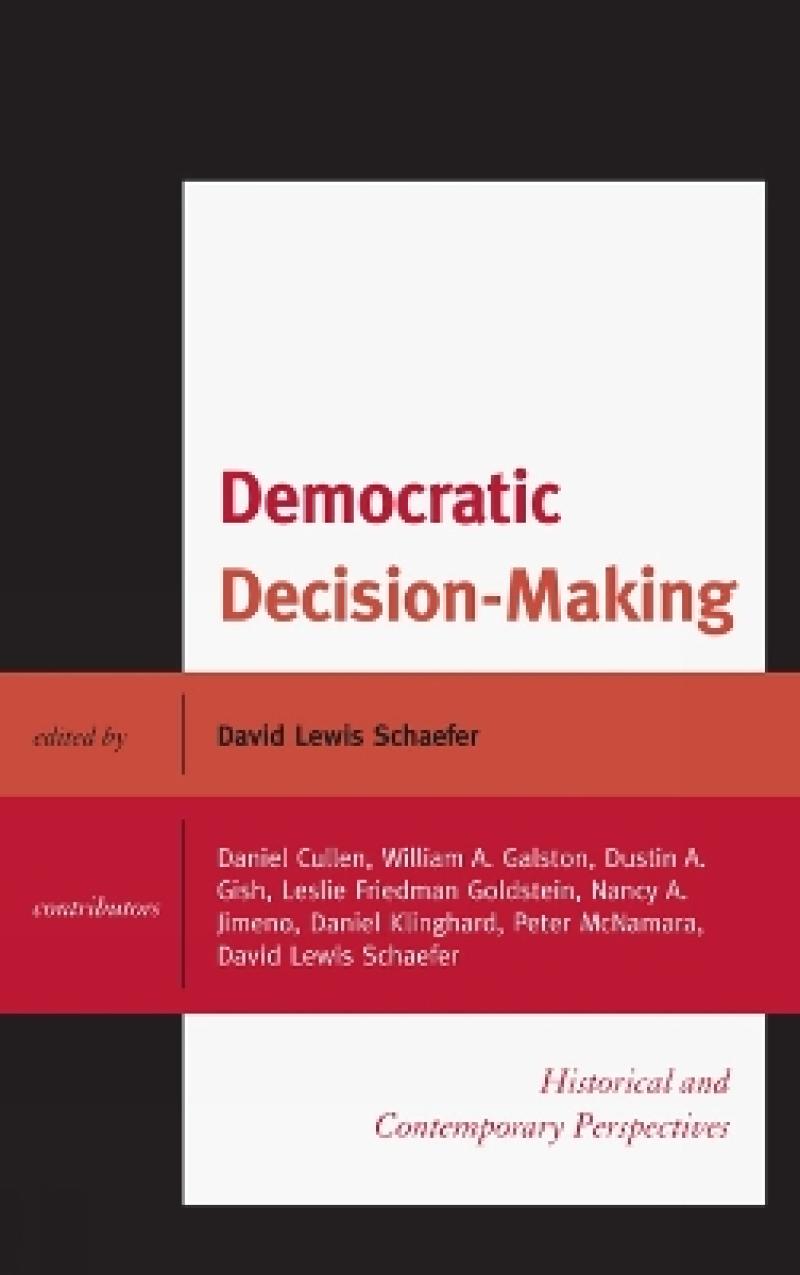An excellent addition to the discussion of Democratic Theory and Democratic Decision-Making. The individual essays are excellent. They are wide-ranging yet also achieve a thought-provoking harmony. This volume will be of interest to both specialists and a wider audience, including for classroom adoption. Highly recommended.
- Gregory Bruce Smith, Trinity College,
This collection, by a group of authors varied in all ways but in the intelligence and relevance of their contributions, is a provocative reconsideration of the issue of democratic decision-making and leadership. Most of the essays are informed by traditional political theory, demonstrating once again that learning in the canon of political theory can greatly enrich our thinking about our politics.
- Michael Zuckert, University of Notre Dame,
